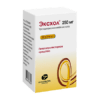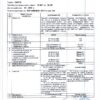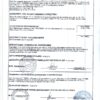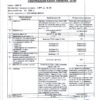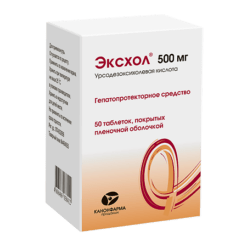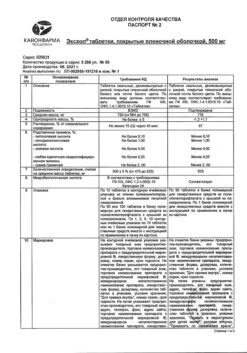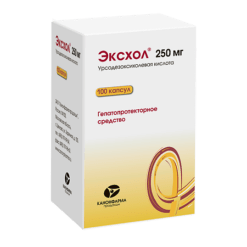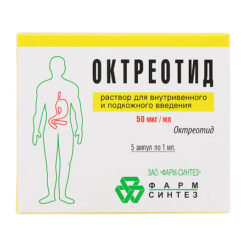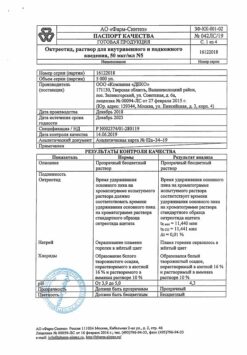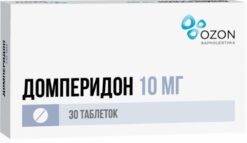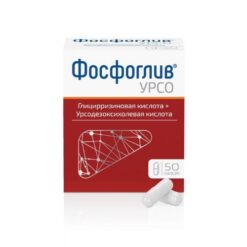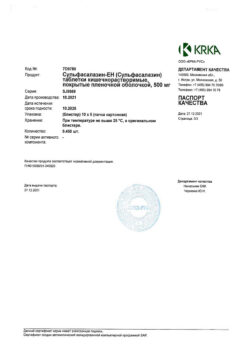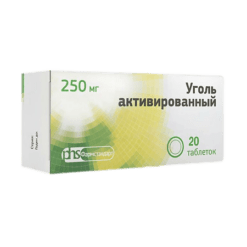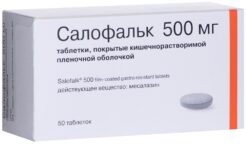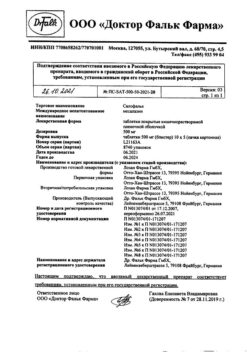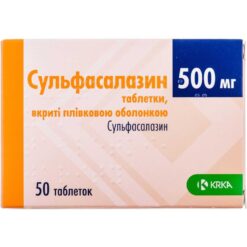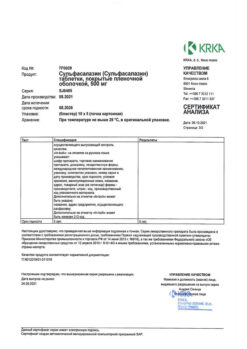No products in the cart.
Exchol, capsules 250 mg 50 pcs
€21.30 €17.75
Description
Exchol – hepatoprotective agent, has choleretic effect.
Limits the synthesis of cholesterol in the liver, its absorption in the intestine and its concentration in the bile, increases the solubility of cholesterol in the biliary system, stimulates the formation and excretion of bile.
Limits bile lithogenicity, increases the content of bile acids in it; causes intensification of gastric and pancreatic secretion, increases lipase activity, has hypoglycemic effect. Causes partial or complete dissolution of cholesterol stones when administered enterally, reduces the saturation of bile with cholesterol, which promotes the mobilization of cholesterol from gallstones.
It has immunomodulatory effect, influences immunological reactions in the liver: decreases the expression of some antigens on the membrane of hepatocytes, affects the number of T-lymphocytes, interleukin -2 formation, decreases the number of eosinophils.
Indications
Indications
uncomplicated cholelithiasis (biliary sludge, dissolution of cholesterol gallstones in the gallbladder with a functioning gallbladder, prevention of recurrent stone formation after cholecystectomy);
chronic active hepatitis;
toxic (including medicinal) liver damage;
alcoholic liver disease;
non-alcoholic steatohepatitis;
primary biliary cirrhosis of the liver;
primary sclerosing cholangitis;
cystic fibrosis (cystic fibrosis) of the liver;
biliary dyskinesia;
biliary reflux gastritis and reflux esophagitis.
Pharmacological effect
Pharmacological effect
Exchol is a hepatoprotective agent and has a choleretic effect.
Reduces cholesterol synthesis in the liver, its absorption in the intestines and concentration in bile, increases the solubility of cholesterol in the biliary system, stimulates the formation and secretion of bile.
Reduces the lithogenicity of bile, increases the content of bile acids; causes increased gastric and pancreatic secretion, enhances lipase activity, and has a hypoglycemic effect. Causes partial or complete dissolution of cholesterol stones when administered enterally, reduces the saturation of bile with cholesterol, which promotes the mobilization of cholesterol from gallstones.
It has an immunomodulatory effect, affects immunological reactions in the liver: it reduces the expression of certain antigens on the hepatocyte membrane, affects the number of T-lymphocytes, the formation of interleukin-2, and reduces the number of eosinophils.
Special instructions
Special instructions
For successful dissolution, it is necessary that the stones are purely cholesterol, no more than 15–20 mm in size, the gallbladder is no more than half filled with stones, and the bile ducts fully retain their function.
When prescribed for the purpose of dissolving gallstones, it is necessary to monitor the activity of liver transaminases and alkaline phosphatase, GGT, and bilirubin concentration. Cholecystography should be performed every 4 weeks in the first 3 months of treatment, then every 3 months. Monitoring the effectiveness of treatment is recommended every 6 months during ultrasound during the 1st year of therapy.
If elevated levels persist, the drug should be discontinued. After complete dissolution of stones, it is recommended to continue use for at least 3 months in order to promote the dissolution of stone remains that are too small to be detected and to prevent recurrence of stone formation. If partial dissolution of the stones has not occurred within 6–12 months after the start of therapy, it is unlikely that the treatment will be effective. The discovery of a non-visualized gallbladder during treatment is evidence that complete dissolution of the stones has not occurred and treatment should be stopped.
Active ingredient
Active ingredient
Ursodeoxycholic acid
Composition
Composition
1 capsule contains:
active substance:
ursodeoxycholic acid 250 mg;
excipients:
colloidal silicon dioxide (Aerosil A-200 or A-300),
calcium hydrogen phosphate dihydrate,
magnesium stearate,
povidone (plasdon K-90 or collidon 90 F),
lactose monohydrate (milk sugar);
composition of the hard gelatin capsule:
body – titanium dioxide, gelatin;
cap – titanium dioxide, gelatin, indigo carmine.
Contraindications
Contraindications
hypersensitivity;
X-ray positive (high calcium) gallstones;
non-functioning gallbladder;
gall-gastric fistula;
acute cholecystitis;
acute cholangitis;
liver cirrhosis in the stage of decompensation;
acute infectious diseases of the gallbladder, bile ducts and intestines;
severe liver and/or kidney failure;
obstruction of the biliary tract;
empyema of the gallbladder;
children under 3 years of age.
With caution: children aged 3–4 years, because It may be difficult to swallow capsules.
Side Effects
Side Effects
Back pain, nausea, vomiting, diarrhea (may be dose-dependent), constipation, transient (transient) increase in liver transaminase activity, allergic reactions; rarely – calcification of gallstones, exacerbation of previously existing psoriasis, alopecia.
Interaction
Interaction
Antacids containing aluminum and ion exchange resins (colestyramine) reduce the absorption of the drug.
Lipid-lowering drugs (especially clofibrate), estrogens, neomycin or progestins increase the saturation of bile with cholesterol and may reduce the ability to dissolve cholesterol gallstones.
Overdose
Overdose
No cases of overdose have been identified.
In case of overdose, symptomatic treatment is carried out.
Storage conditions
Storage conditions
Store in a dry place, protected from light, at a temperature not exceeding 25 °C.
Shelf life
Shelf life
3 years.
Manufacturer
Manufacturer
Kanonpharma production CJSC, Russia
Additional information
| Shelf life | 3 years. |
|---|---|
| Conditions of storage | Store in a dry, light-protected place at a temperature not exceeding 25 OS. |
| Manufacturer | Kanonfarma Production ZAO, Russia |
| Medication form | capsules |
| Brand | Kanonfarma Production ZAO |
Other forms…
Related products
Buy Exchol, capsules 250 mg 50 pcs with delivery to USA, UK, Europe and over 120 other countries.





